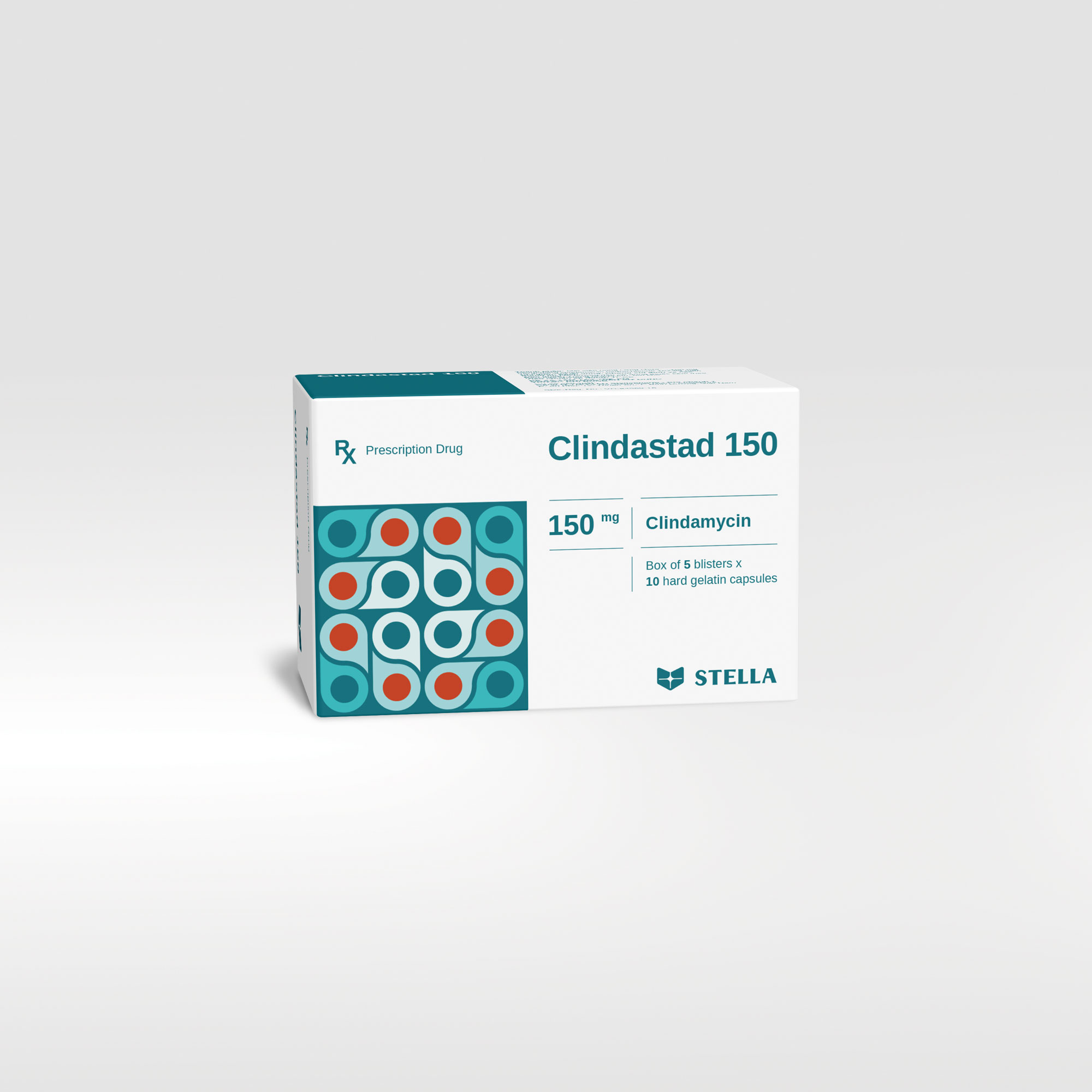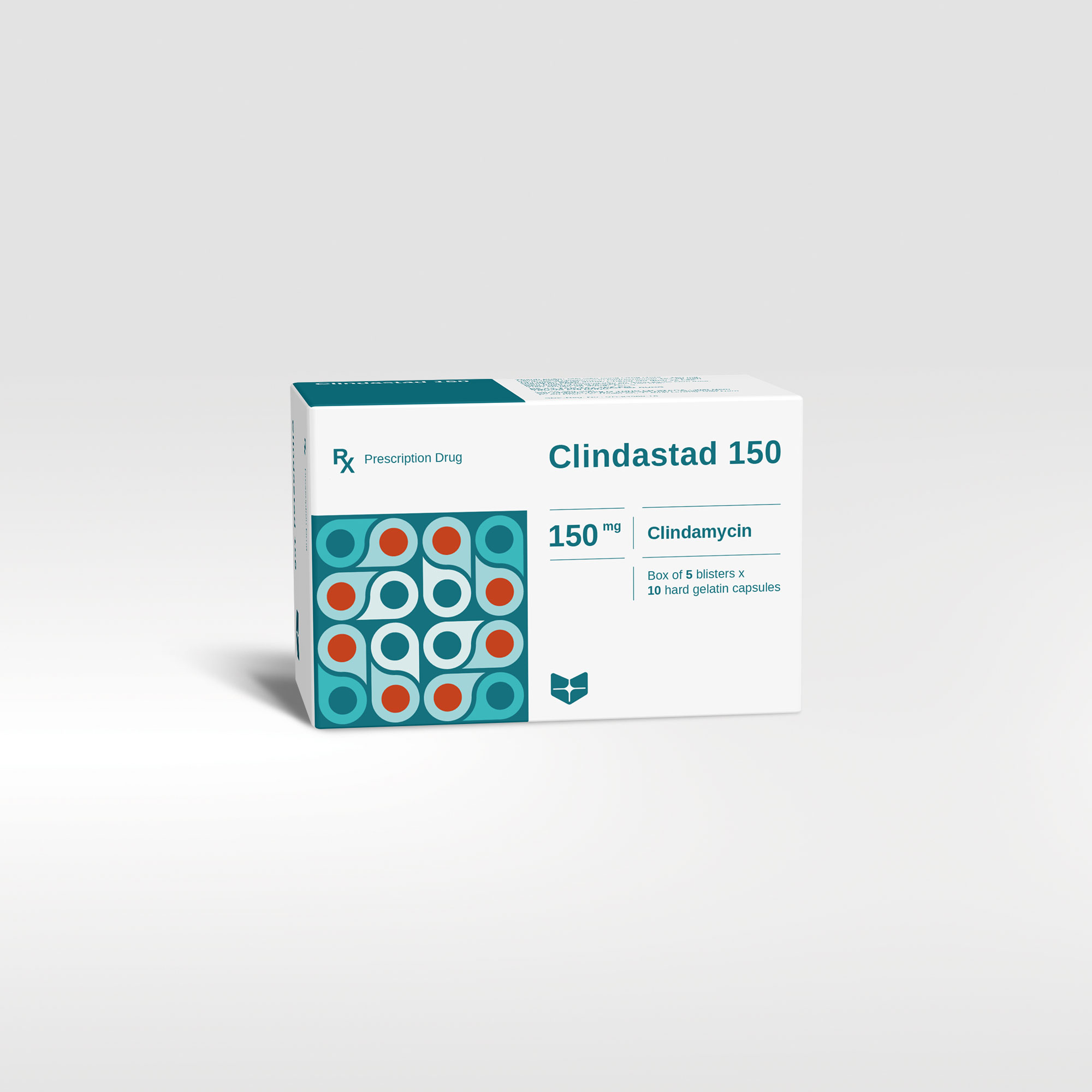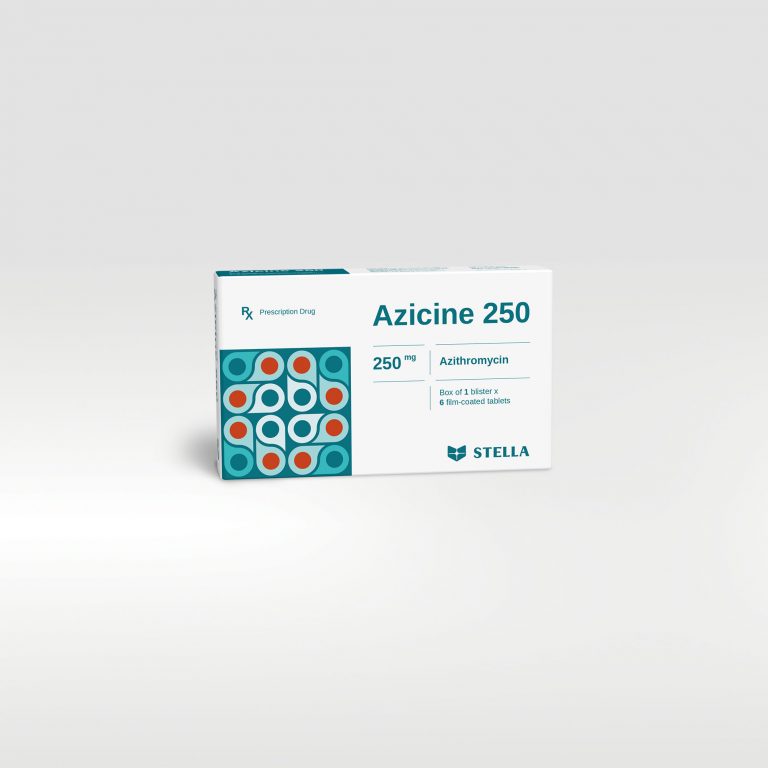Clindastad 150 Rx
Clindastad 150 contains clindamycin is a lincosamide antibiotic with a primarily bacteriostatic action against gram-positive aerobes and a wide range of anaerobic bacteria.
| Pack size | Box of 50 capsules, 100 capsules |
| Shelf-life | 48 months |
| Composition | Clindamycin |
| Dosage forms and strengths | Hard gelatin capsule: 150 mg |
Product code :









